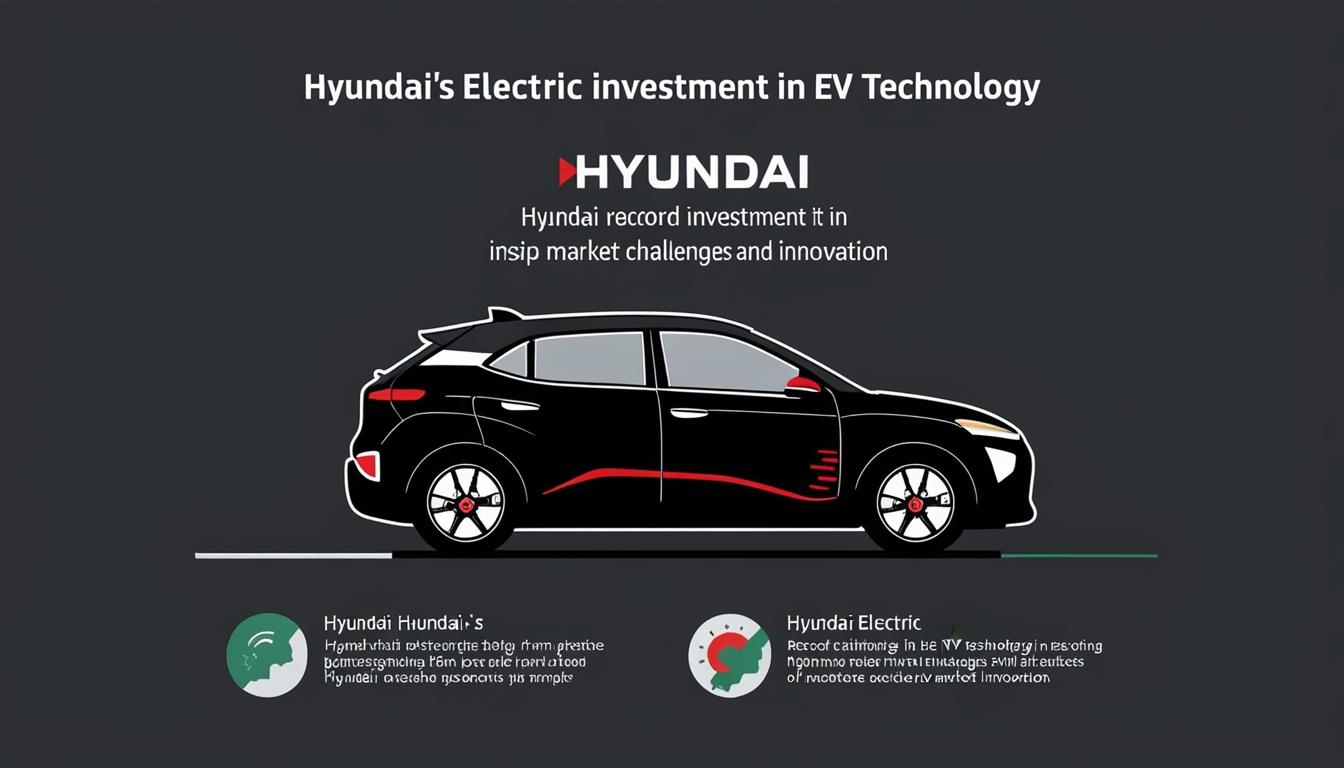Hyundai Motor Group has announced a record investment of Won24.3 trillion (approximately $16.7 billion) in South Korea for 2023 as part of an ambitious strategy to enhance its electric vehicle (EV) capabilities amid rising domestic and geopolitical challenges. This announcement, made on Thursday, reflects the company’s keen focus on electrification and connected technologies, essential for navigating an increasingly competitive automotive landscape.
The investment plan is notably comprehensive, comprising Won11.5 trillion earmarked for research and development. A further Won12 trillion will be allocated to the upgrade of production facilities dedicated to EV manufacturing, while the remainder is aimed at accelerating advancements in autonomous driving technology. Hyundai Motor Group explained, “Hyundai Motor Group is making the largest investment ever in South Korea this year because it believes that continuous and stable investments are essential to overcome the crisis and secure future growth engines in the face of growing uncertainties.”
The announcement has had a mixed impact on the stock market, initially driving shares of Hyundai and Kia up by 1% and 3.7% respectively, although Hyundai shares closed down 0.2% by the end of the trading day while Kia shares saw a modest increase of 2.3%.
The backdrop to this significant investment includes a warning from Hyundai’s chair, Euisun Chung, regarding the external risks tied to changing trade policies under former President Donald Trump, who has hinted at implementing a universal 10% tariff on imported goods in the near future. This concern is exacerbated by sluggish domestic demand, influenced by current political tensions following President Yoon Suk Yeol’s impeachment.
Hyundai aims to improve its global sales target by 2% to 7.4 million vehicles by 2025 after falling short of its projections last year, primarily due to stiff competition from lower-cost Chinese manufacturers in Europe and developing markets. Lee Hang-koo, head of the Jeonbuk Institute of Automotive Convergence Technology, noted, “They will have a hard time this year to compete with lower-cost Chinese rivals in Europe and developing countries. Their margins are likely to be squeezed further as they won’t be able to offset falling overseas demand with domestic sales.”
Adding to the complexities, consumer confidence in the domestic market has been declining, resulting in a hesitance to purchase high-value items, which is further strained by the ongoing political upheaval. As part of a strategic response, Hyundai’s EVs are eligible for US tax credits due to the provisions of the Inflation Reduction Act, which has enhanced the competitiveness of its vehicles in the lucrative US market. The company has also commenced operations at its $7.6 billion plant in Georgia that produces its flagship Ioniq electric sport utility vehicle.
However, concerns loom over the longevity of the Inflation Reduction Act, particularly in light of Trump’s threats to dismantle it. Despite these uncertainties, Hyundai has committed to a global investment of $90 billion aimed at expanding its EV and hybrid model production by the end of the decade. In a move believed to counteract potential disruptions caused by new trade policies, Hyundai appointed José Muñoz as its first foreign chief executive last year. Speaking to Bloomberg, Muñoz referred to localising production in the US as one of the “simplest and better” solutions in response to policy changes.
In a bid to attract younger consumers, Hyundai has ventured into selling cars on Amazon, becoming the first car manufacturer to do so. The company projects that revenue from online sales could account for up to 30% of its total sales in the US by 2030, highlighting the company's recognition of evolving automotive retail trends and the benefits of reducing the car purchasing process to as little as 15 minutes.
Source: Noah Wire Services
